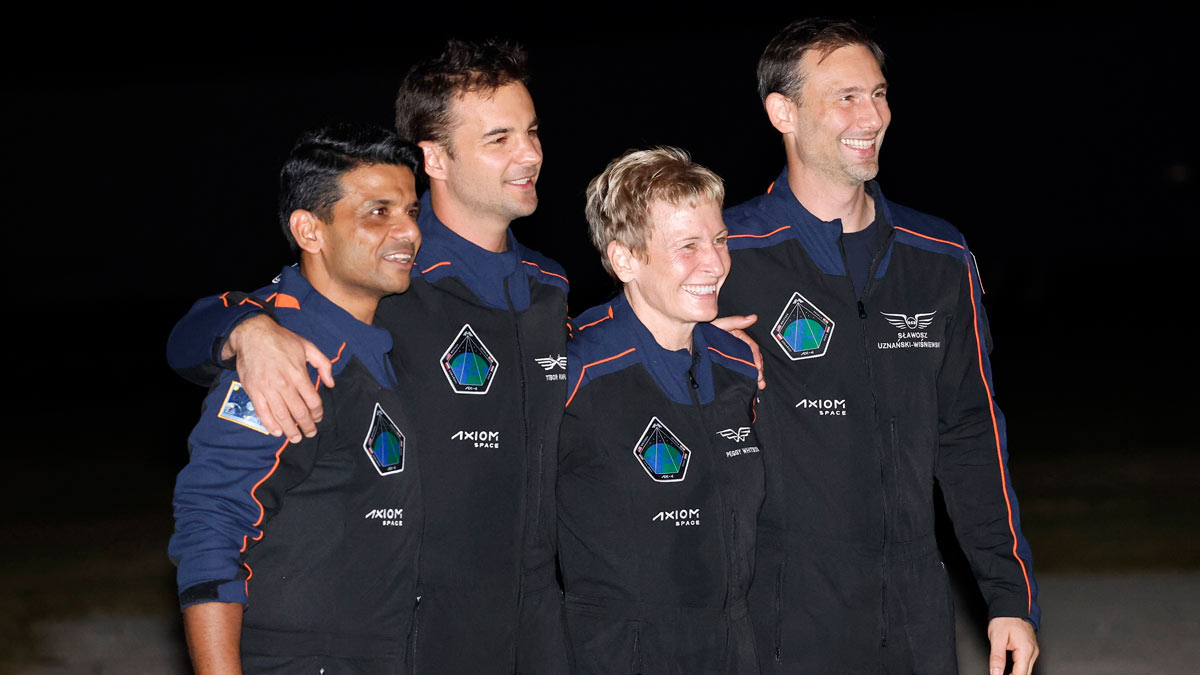Axiom-4 mission with India’s Shubhanshu Shukla set to take off today
 SpaceX Falcon 9 crew pose for a photo before departing for a launch to the International Space Station at the Kennedy Space Center in Cape Canaveral, Fla | AP
SpaceX Falcon 9 crew pose for a photo before departing for a launch to the International Space Station at the Kennedy Space Center in Cape Canaveral, Fla | AP
Indian astronaut Shubhanshu Shukla and three others are all set to travel to the International Space Station as the Axiom-4 mission, after multiple delays, will be launched on Wednesday at 12.01 pm.
SpaceX, which is providing transport for the space mission, said the weather was 90 per cent favourable for lift-off.
"All systems are looking good for Wednesday's launch of @Axiom_Space's Ax-4 mission to the @Space_Station and weather is 90% favourable for liftoff," it said in a post on X.
Axiom-4, the fourth private astronaut mission to the International Space Station, is jointly carried out by Axiom Space, SpaceX and NASA.
The mission will lift off from Launch Complex 39A at NASA's Kennedy Space Center in Florida.
“The Ax-4 private astronauts will greet the seven Expedition 73 crewmates, call down to Earth for welcoming remarks, then participate in a safety briefing with the station residents,” the US space agency said.
Peggy Whitson, former NASA astronaut and director of human spaceflight at Axiom Space, will command the commercial mission, while Shukla, an Indian Space Research Organisation (ISRO) astronaut, will serve as pilot.
The two mission specialists are ESA (European Space Agency) project astronaut Sławosz Uznański-Wiśniewski of Poland, and HUNOR (Hungarian to Orbit) astronaut Tibor Kapu of Hungary.
Once docked, the private astronauts plan to spend about two weeks aboard the orbiting laboratory, conducting a mission comprised of science, outreach, and commercial activities.
According to a NASA statement, Axiom Mission 4 delivers on a commitment highlighted by President Donald Trump and Indian Prime Minister Narendra Modi to send the first ISRO astronaut to the station.
It said the space agencies are participating in five joint science investigations and two in-orbit STEM (science, technology, engineering, and mathematics) demonstrations.
“NASA and ISRO have a long-standing relationship built on a shared vision to advance scientific knowledge and expand space collaboration.”
Sci/Tech